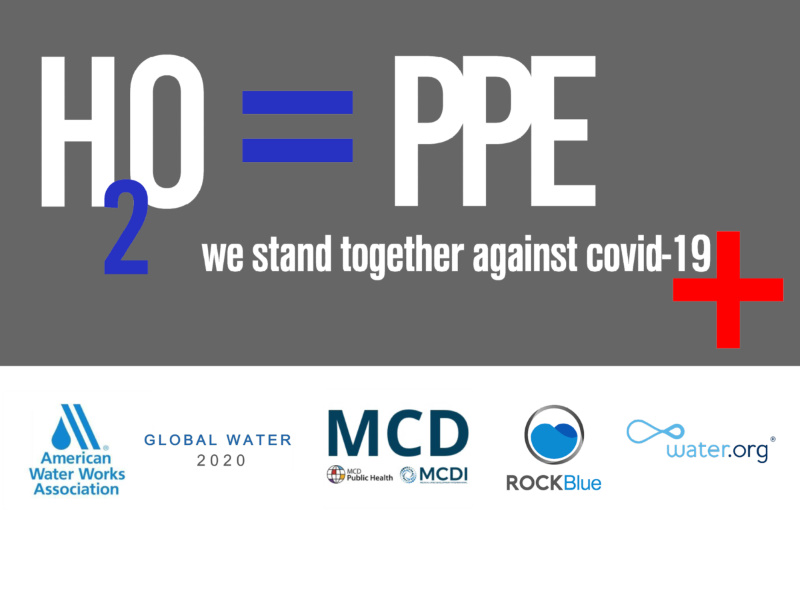Water is Personal Protective Equipment
Nov. 6, 2020

How can you avoid COVID-19, when you lack safe water with which to clean your hands or surfaces? Communities around the world are seriously grappling with this question as the COVID-19 pandemic imperils global water supplies and nurtures a growing humanitarian crisis in populations who lack consistent access to water as well as sanitation.
Concerned with this tangential crisis, MCD is partnering with other leading organizations from the water sector such as ROCKBlue, the American Water Works Association (AWWA), Global Water 2020, and Water.org, to raise awareness about this issue and advocate for additional resources for water supply in a new "Water is PPE" campaign.
Concerned with this tangential crisis, MCD is partnering with other leading organizations from the water sector such as ROCKBlue, the American Water Works Association (AWWA), Global Water 2020, and Water.org, to raise awareness about this issue and advocate for additional resources for water supply in a new "Water is PPE" campaign.
Before the pandemic, unfortunately, WSPs were already beset with struggles that left about 35% of the global population without reliable access to clean water. In fact, according to Global Water 2020’s John Oldfield, about “1-in-4 health care facilities across the globe lack basic water services" and "1-in-5 health care facilities across the globe lack sanitation services.” Now as the virus’ spread increases demand, disrupts supply chains, and decreases WSP plant productivity, the number of those without reliable access to clean water is likely to skyrocket.
The “Water is PPE” campaign not only raises awareness about this growing humanitarian crisis, but also offers an array of solutions. Aid agencies, foundations, and development-finance institutions, ROCKBlue founder Peter Macy suggests, can secure “the funds and facilities for water service providers.” Governments, Macy adds, can “quickly reprogram budgets and/or secure loans so emergency water funds are made available to water service providers,” while regulators can “temporarily modify regulations to enable those water providers to function and survive.” Other solutions the “Water is PPE” campaign proposes include:
- Extending temporary relief assistance to water service providers (WSPs) as part of governments’ COVID response efforts.
- Enabling WSPs to defer payments on outstanding debts.
- Supporting a large, global finance facility (similar to what was established after the Indian Ocean Tsunami). This could include TA/turnaround funds (e.g., GIZ Urban Water Catalyst), capital facilities and project preparation resources to demonstrate bankable WSS investments, blended finance facilities to attract private capital and leverage limited public resources, and ensure utilities are part of longer-term public health responses to pandemics like this.
- Where feasible, offering short-term, renewable loans or letters of credit to address cash flow gaps.
- Providing technical assistance to help WSPs help manage their cash flows and finances.
- Extending grace periods for people who need water services but are unable to pay their bills.
- Expanding handwashing facilities.
- Expanding hygiene education and handwashing outreach to help people protect themselves.